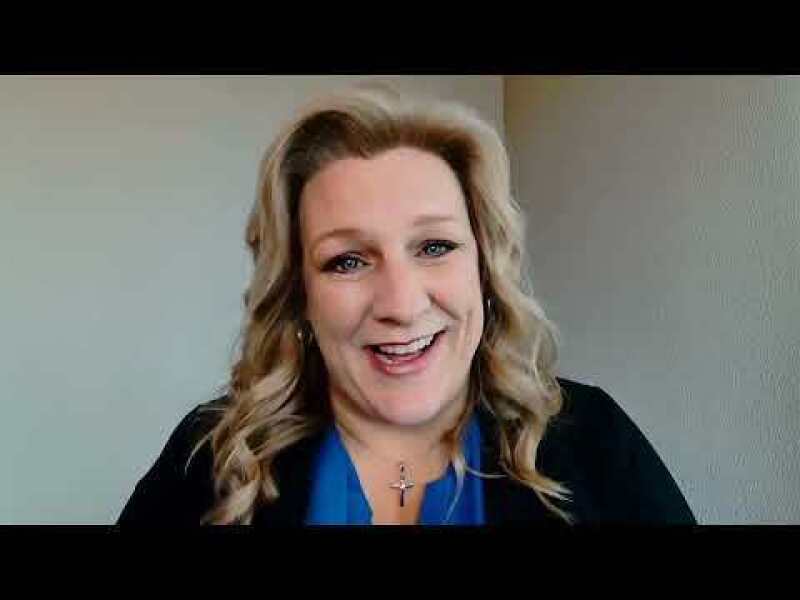In traditional health care models, patients are assessed to determine if they have medical problems or diseases. They’re often treated by multiple different health care providers who treat specific issues in isolation. In holistic assessment nursing care, health care providers evaluate a person's overall well-being, including the patient's physical, mental, emotional, and financial situation and their social and living environment. The aim of a holistic nursing assessment is to thoroughly understand all the factors that contribute to a patient’s health so their health care team can develop a comprehensive plan to meet their needs most effectively.1
This article will cover holistic nursing assessment, including its importance, benefits, and methods.
The importance of holistic assessment in nursing
Holistic health care addresses patients as a whole person, more than merely a conglomeration of systems, vital signs and physical condition. Their psychological or emotional health, physical, social, and spiritual needs all contribute to their well-being. Performing a more comprehensive holistic assessment allows you to fully understand a patient’s circumstances and contributes to better patient care and outcomes.2
When you ask questions that relate to a patient’s life circumstances, you can create a care plan and effective interventions that address underlying issues in addition to specific symptoms. While a minimal assessment can diagnose that a patient has high blood pressure, a holistic assessment can help you address deeper issues within a person's life. Your patient may be experiencing financial stress and feel like they can only afford cheap, high-sodium, processed food. If you uncover these issues in a holistic assessment, you can help the patient develop a plan to eat well on a budget and learn stress reduction techniques.2
Tools and techniques for holistic assessment
A holistic nursing assessment includes traditional and nontraditional tools and techniques. While you’ll still be using standard tools to measure physical health, you will also be using assessment forms to interview your patients about various aspects of their lives. You’ll also rely on active listening to understand the intent behind what your patients say and your observational skills to notice issues the patient may not bring up.2
During an initial holistic health assessment, you’ll ask your patient about any physical problems they have, including a complete review of systems. You’ll also ask about their social and environmental concerns, such as their living conditions, worries, fears, financial concerns, and family issues. Next, ask about your patient’s emotional state and spiritual and religious needs.3
How technology can support holistic assessments
The digital transformation has changed how society does business and created more convenient and efficient processes in many industries. Health care is no exception. You can take advantage of digital assessment tools, apps, and telemedicine platforms to discover more about your patients’ needs. The rise in wearable technology means your patients can also contribute to their assessment by providing extensive health data from their own devices. They can show you how much activity they get on a daily basis or provide results from continuous glucose monitoring patches.4
Electronic health records (EHRs) also provide insight into a patient’s medical history, often giving you access to recent evaluations and diagnostic test results. This allows multiple providers to access a single source of truth related to a patient’s care and can eliminate misunderstandings and unnecessary duplicate testing.5
Integrating holistic assessment into daily nursing practice
Although holistic health assessments can be more time-consuming than performing traditional health assessments, it can help you make informed decisions about patient care that are more targeted and effective. Incorporating core values of holistic nursing and mastering the knowledge and skills you need can help you successfully implement holistic assessments into your daily nursing practice.6
According to the American Holistic Nurses Association (AHNA), the core values of holistic nursing include:6
- A holistic healthcare philosophy that includes a commitment to education, reflection, and knowledge
- Ethics grounded in theory and supported by research
- A belief that nurses must care for themselves in order to care for others
- Working with patients to develop shared goals for health and healing
- Embracing assessment and treatment in an environment of caring
The knowledge and skills you need to implement the core values of holistic nursing include the following:6
- The knowledge necessary to provide quality care in nursing practices
- The expertise needed to make accurate decisions about care and easily perform nursing tasks
- Intuition so you can understand your patients’ experiences and what they’re trying to communicate to you
- An understanding of theories so you can understand, reflect on, and explain practices
- Creativity to develop new approaches to being with your patients and solve problems
Nurses who can prove they have the knowledge and skills to successfully implement these holistic health practices can earn a Holistic Nurse-Certified (HNC) designation through the American Holistic Nurses' Certification Corporation (AHNCC) via a portfolio review and standardized testing. Pursuing a degree with coursework in holistic nursing can also help you learn to incorporate holistic nursing practices in your career.6
Steps to conducting a holistic assessment in nursing
A holistic assessment is a patient-centered tool for developing a treatment plan based on evidence-based practices, patient values, and nursing intuition. It includes the following steps:7
- Assessing the patient using critical thinking skills as well as subjective and objective data from various sources
- Reaching a diagnosis to prioritize care based on the fundamental needs of all people
- Planning goals and health outcomes based on evidence-based practices and patient-specific goals
- Implementing the steps in the plan of care
- Evaluating the effectiveness of the patient care plan through reassessment and follow-up
Enhance your holistic nursing skills with an online RN-BSN program
If you’re interested in expanding your nursing practice to include holistic care that meets the optimal health needs of the whole patient and taking on leadership roles in nursing, a Bachelor of Science in Nursing (BSN) Online from Oklahoma City University will help you develop the skills you need. Our renowned faculty are recognized leaders in the field and will help you develop as a health care professional. Plus, our rigorous curriculum covers the evidence-based practices and analytical skills you need to provide patient-centered care. Learn more about admissions requirements or contact one of our admissions outreach advisors today to apply and take the next steps in your rewarding career.
- Retrieved on October 30, 2024, from aiam.edu/alternative-medicine/holistic-assessment-nursing/
- Retrieved on October 30, 2024, from atlashealthmedicalgroup.com/the-ultimate-checklist-for-your-first-holistic-health-assessment/
- Retrieved on October 30, 2024, from cntw.nhs.uk/wp-content/uploads/2019/05/03.-Nursing-Assessment-V02.pdf
- Retrieved on October 30, 2024, from pmc.ncbi.nlm.nih.gov/articles/PMC10350363/
- Retrieved on October 30, 2024, from elationhealth.com/resources/blogs/how-ehrs-enable-better-continuity-of-care
- Retrieved on October 30, 2024, from ojin.nursingworld.org/table-of-contents/volume-6-2001/number-2-may-2001/holistic-nursing-practice/
- Retrieved on October 30, 2024, from ncbi.nlm.nih.gov/books/NBK499937/





